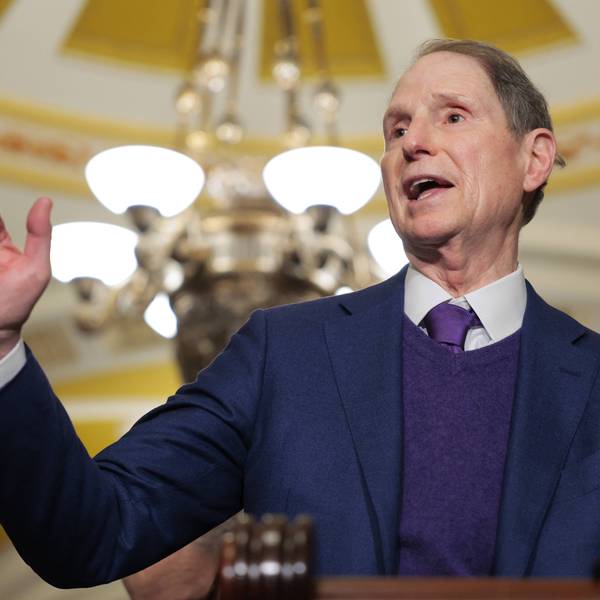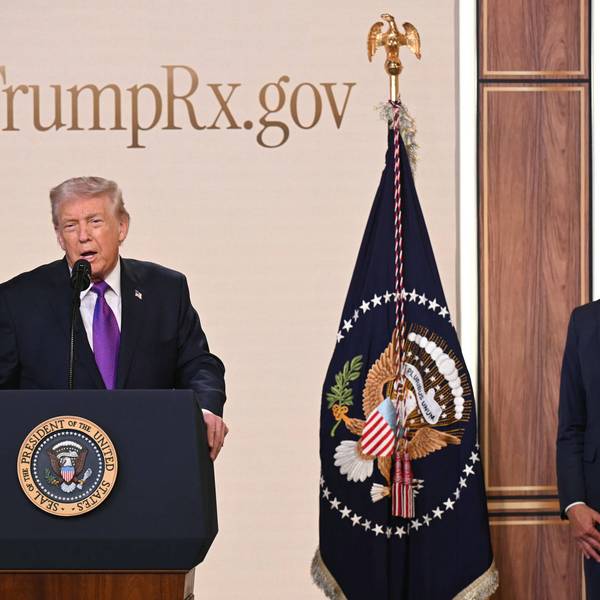The pharmaceutical lobby is gearing up for a massive, multi-million-dollar post-election ad blitz to fight the shifting rhetoric surrounding drug prices, Politico reports.
Skyrocketing drug prices have become a central issue in the 2016 election cycle, bolstered by recent bipartisan legislation that aims to wrangle back control of the market and outspoken criticism from Bernie Sanders and Democratic nominee Hillary Clinton.
Now, the Pharmaceutical Research and Manufacturers of America (PhRMA) is planning to spend hundreds of millions of dollars to push back on politicians from both sides of the aisle--a campaign that "will dwarf the $20 million that health insurers spent on the iconic 'Harry and Louise' campaign credited with sinking...Clinton's health reform plan in the early 1990s," reports Politico's Sarah Karlin-Smith.
Karlin-Smith writes:
The group's playbook for 2017 includes adding new members, raising dues and retooling a lobbying machine that insiders say atrophied since PhRMA achieved many of its top goals with Obamacare's passage. Now it's ready to shout its message not just inside the corridors of power but beyond the Beltway.
[....] PhRMA is also meeting with political and industry insiders who will shape policy on drug prices. In July, the PhRMA board met with Clinton health policy adviser Chris Jennings, Anthem CEO Joe Swedish, Republican health economist Gail Wilensky and Steve Pearson of ICER, a research organization that analyzes the cost-effectiveness of drugs.
"They are formidable under any scenario. They are formidable now," Jennings told Politico. "The idea that they are going to bring in more resources, borders on petrifying."
But opponents say the campaign, which is expected to include commercials with "positive tones," featuring cancer survivors and soothing music, could backfire.
Topher Spiro, vice president of health policy at the Center for American Progress, told Karlin-Smith that drug lobbyists "talk a good game.... But when push comes to shove, they are not willing to budge on their public positions or their policy positions, so it's hard to give them any credit whatsoever."



